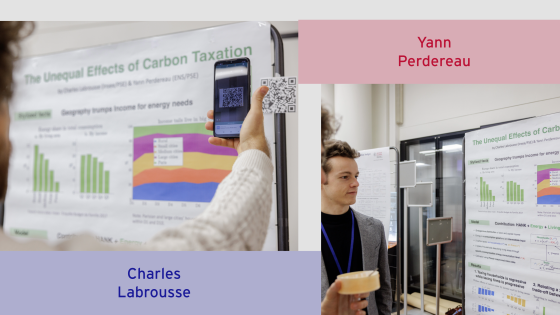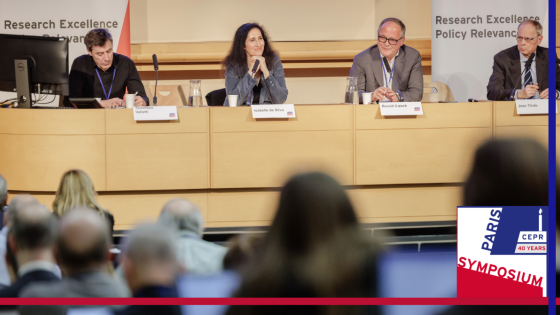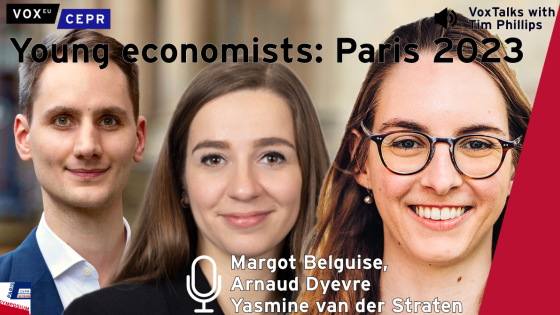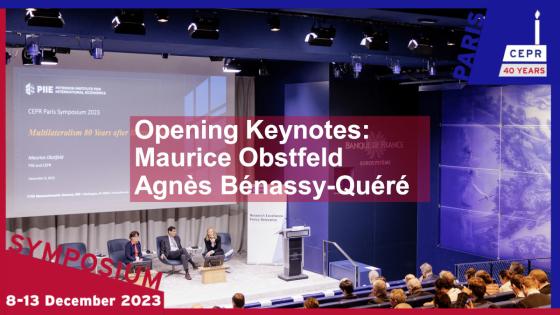Philippe Martin was a true CEPR hero: not only was he enormously influential in facilitating CEPR’s move to Paris, he was also a Research Fellow in CEPR’s International Macroeconomics and Finance, International Trade and Regional Economics, and Macroeconomics and Growth programmes, and a member of four Research and Policy Networks, which gives an indication of the depth and breadth of his research. This is a huge loss to CEPR, to academic economics and to economic policymaking more widely, and a deep personal loss to all who knew him. A set of tributes is available here.
To commemorate Philippe Martin's legacy and dedication to education, CEPR has named the Paris Symposium PhD student poster award after him. The Philippe Martin prize, carrying a monetary reward of €2000, was determined through a popular vote during CEPR’s flagship Symposium in December 2023. The inaugural recipients, Charles Labrousse and Yann Perdereau, secured the prize for their poster titled "The Aggregate and Unequal Effects of Carbon Taxation", presented during the climate days at the symposium.
The winning paper creates a heterogeneous-agent dynamic equilibrium model with both vertical (wealth and income) and horizontal (living area) heterogeneities, where energy is both a consumption good for households and an intermediate input for firms. Three key results are obtained. First, geography is more important than income to assess the distributive effects of carbon taxation, as rural households bear more substantial losses. Second, the carbon tax on households is regressive, while the carbon tax on firms is progressive. Third, it is possible to achieve welfare increase and emission reduction through appropriate recycling of carbon policy, but a trade-off between equity and efficiency emerges if we want to reduce the rural-urban gap.
The selection process for the Philippe Martin prize was rigorous, with 29 posters chosen for presentation out of 181 submissions received through a competitive call for papers. You can view the winning poster and full paper on CEPR’s symposium webpage together with the other posters that were presented throughout the symposium.
CEPR extends gratitude to all PhD students who participated, acknowledging their valuable contributions, and wishes them success in their future endeavours.
Access photos of the student poster sessions and wider Symposium activities here.




